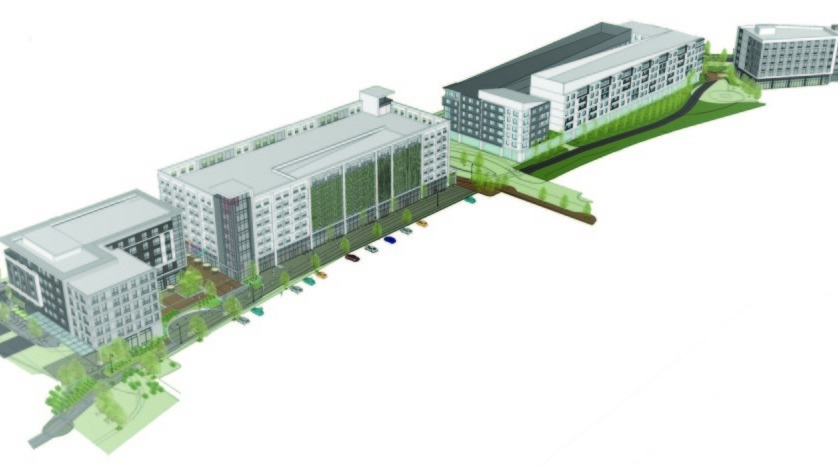It’s been over three years since the city of Portland approved the sale of 3.25 acres of land in Bayside to Federated Cos.; nine months since the city Planning Board gave the go-ahead to “midtown,” the Miami developer’s retail and residential project there; and eight months since a group called Keep Portland Livable sued to stop midtown.
Now the clock has started again. Federated has worked with its critics and come up with a new, scaled-back proposal for the site; the developer hopes to complete the city approval process by mid-January. But while a Keep Portland Livable co-founder has called the new design a “solid victory” for its members, it’s less of a win for the city.
The fight over midtown will send a discouraging message to developers and cost Portland hundreds of desperately needed housing units in a neighborhood the city’s been trying to revitalize for years. Keep Portland Livable’s obstructionism ultimately could keep Portland unaffordable for the very people the group claims to champion.
The revamping of midtown isn’t good news for those who are struggling to find affordable housing in Portland, where the rental vacancy rate has been hovering around 2 percent for several years and the average monthly rent for a two-bedroom apartment has risen from $850 in 2008 to over $1,000.
The original plan called for four 14-story towers with room for 850 apartments; the new proposal reduces the towers’ height to six stories, with space for 440 housing units. When market-rate units – like those in the midtown buildings – are built, people who can afford them will choose them over less-costly apartments in older buildings, making that space more affordable. But this benefit will be blunted by the downsizing of midtown.
Compared to the original plan, the smaller project will also generate less of the property tax revenue that Portland needs to support schools and other services for the economically diverse population drawn to Maine’s largest city.
The city isn’t losing all the benefits of the project. The revised proposal retains infrastructure improvements to keep the low-lying neighborhood above flood level, and it keeps 90 percent of the retail space that both Federated and Keep Portland Livable agree is critical to creating a lively urban environment in Bayside, long seen as an industrial wasteland.
Federated’s project conformed to zoning requirements and carried out elements of the city’s comprehensive plan. However, its approval still triggered a wasteful lawsuit. This tells other developers that no matter how willing they are to work with the city, any well-funded group of citizens could quickly send them back to square one.
Keep Portland Livable deserves praise for working with Federated to redesign midtown, but this collaboration is undercut by the group’s readiness to go to court – setting an adversarial tone that could stymie Portland’s efforts to attract workers and grow its economy for years to come.
Copy the Story LinkSend questions/comments to the editors.



Success. Please wait for the page to reload. If the page does not reload within 5 seconds, please refresh the page.
Enter your email and password to access comments.
Hi, to comment on stories you must . This profile is in addition to your subscription and website login.
Already have a commenting profile? .
Invalid username/password.
Please check your email to confirm and complete your registration.
Only subscribers are eligible to post comments. Please subscribe or login first for digital access. Here’s why.
Use the form below to reset your password. When you've submitted your account email, we will send an email with a reset code.